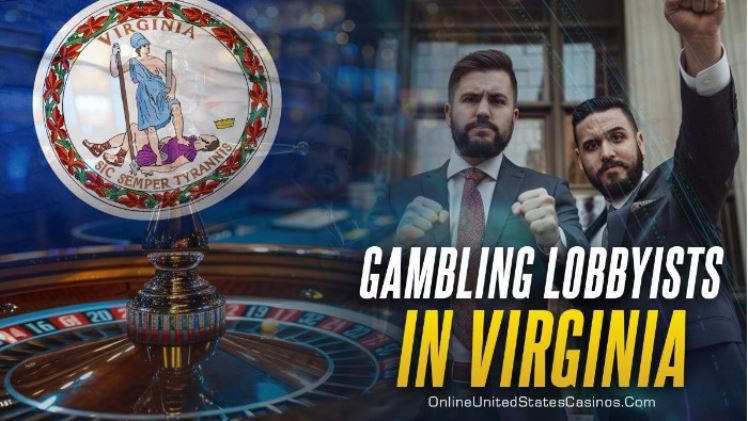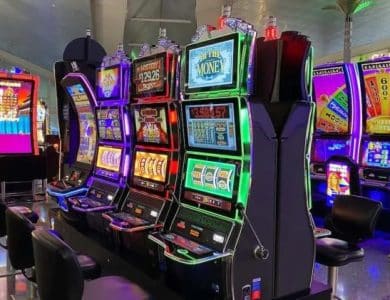These Are the Lobbyists Fighting to Legalize Gambling in Virginia

The home of Arlington National Cemetery and Jamestown can be classified as one of the US regions boasting a somewhat (generally) conservative stance on betting pastimes. That said, the Mother of States legalized sports wagering in April 2020, and nine months later, it started allowing online platforms to accept bets from of-age residents of this territory. A statewide lottery also pulls in decent numbers in Virginia, as does parimutuel and off-track horse wagering.
Interestingly, greyhound racing is off-limits here, and land-based casino gambling only gets allowed in Bristol, Danville, Norfolk, Richmond, and Portsmouth, each of these cities boasting one casino a piece. That is something that only became available post-November 2020 through local referendums.
Concerning online gambling in Virginia, platforms offering casino-style products in these Internet gaming hubs have not yet been authorized, something West Virginia did in 2019. Hence, for years, Virginian lovers of interactive games of chance had to clench their thirst for gaming fun via sweepstakes/social casinos that do not accept real-money deposits or by playing at internationally regulated fiat and crypto platforms based in a foreign land that permit American gamblers to sign up.
However, a new form of gaming recently got voted legal (49-43) for Virginia’s hospitality landscape, awaiting the governor’s signature. The passed legalization represents a long-standing push in the state’s legislative theater for skill-based gaming through slot-like machines to get permitted statewide. These arcade-type devices are designed similarly to Vegas reel-spinning games but allegedly feature a skill element. That is a claim their manufacturers make.
Opponents of their regulation noted that allowing these machines would represent gambling expansion in Virginia that would impact low-income households the most. Yet, many politicians and public figures pressured the Virginia General Assembly to make them legal in early March, and we rattle off the key figures who drove this push below.
Bill Stanley
Willaim M. Stanley Jr. is a Republican politician elected to the Virginian Senate in 2011 (20th district) and is one of the senators selected to write the legislation for skill-based gambling in Virginia, despite Stanley having noted ties with the industry. It is worth pointing out that it is not unusual for Virginia General Assembly members who are lawyers, like Stanley, to vote on laws that could influence their clients, positively or negatively.
The senator in question has a J.D. from the District of Columbia School of Law and has practiced law in Franklin County for decades. Per the Virginia Conflict of Interest and Ethics Advisory Council, his ties with famed machine game manufacturer Pace-O-Matic have been deemed a non-issue, ruling that they do not have a legal conflict. That is so, even with Stanley’s firm’s past of working with Pace-O-Matic on overturning a General Assembly’s ban on skill games.
Aaron R. Rouse
Rouse is a Democratic Senator born and raised in Hampton Roads, representing the 22nd district in the Senate of Virginia. He is an ex-NFL and UFL player who enjoyed playing time in the National Football League in the shirts of the Packers, Giants, and Cardinals. Rouse began his political career in 2018, running for Virginia Beach City Council. Two years later, he attempted to run for mayor of Virginia Beach, and in 2023, Rouse became a senator narrowly defeated Republican Kevin H. Adams.
He supported the skill-based gaming bill, believing this is a small business concern that affects many first-generation Americans, ones going after the American dream. Rouse has also gone on record that he has nothing against casinos gaining a stronger foothold in Virginia, stating that sports gambling, lotteries, and gaming have their place in modern society.
Rich Kelly
The Virginia Merchants and Amusement Coalition was founded in the summer of 2023 by business owners, chiefly from the hospitality sector, including convenience store owners and truck stops. Rich Kelly heads the organization. Its acting president is a notable Virginia restaurateur who claims the state used to lose $130 million in annual taxes due to banning unite skill games in the commonwealth. Kelly also notes that these machines help businesses by providing adequate funds to cover basic operational costs, like paying utility bills.
Hermie Sadler
Sadler is a former NASCAR driver who has professionally competed in stock-car racing for over two and a half decades. He ran for office in Virginia as a Republican in 2019, losing in the primary election. In 2022, he again tried his chances against Delegate Emily Brewer, to whom he lost in 2019, and suffered another defeat in the primaries.
Aside from racing, Sadler has a history in the pro wrestling industry, appearing in multiple promotions in the 2000s and 2010s, most prominently TNA, UWF, and Global Force. Today, he owns several restaurants and truck stops in Southern Virginia. In 2021, he unsuccessfully tried to sue Virginia’s Governor, Ralph Northam, claiming that the ban on skill-based gaming devices was unconstitutional and unfair towards small-business owners who relied on a piece of the revenues these machines generated to keep the lights on in their venues, especially during the COVID-19 crisis. The previously discussed Pace-O-Matic also has a connection to Sadler, as they used to sponsor his racing team.




